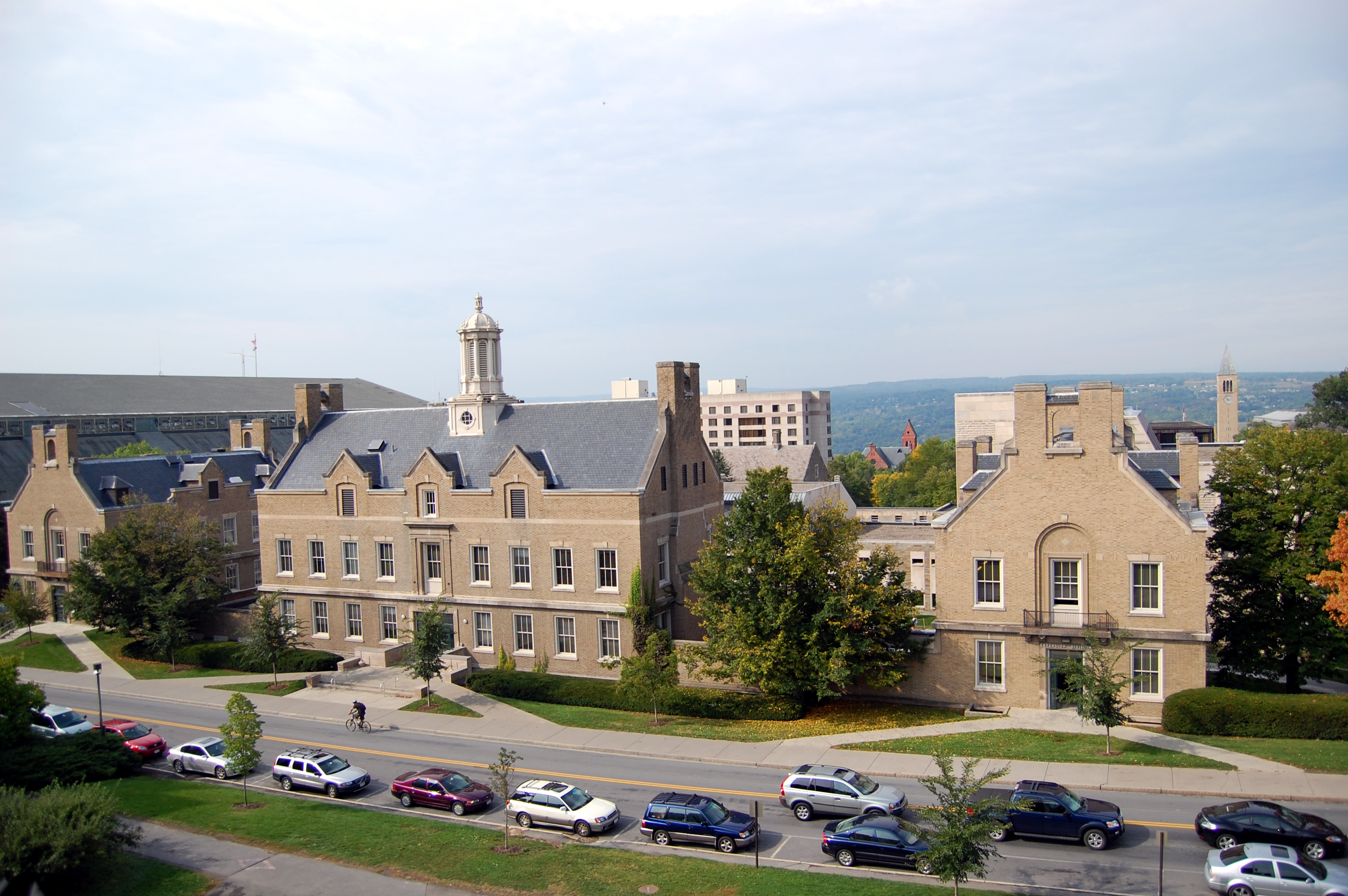|
Ghana Institute Of Management And Public Administration
The Ghana Institute of Management and Public Administration (GIMPA) is a public co-educational university spread over four campuses (Accra, Tema, Kumasi and Takoradi) and made up of six schools, ten research centers located at Greenhill in Accra, Ghana. The location of GIMPA, Greenhill, was named by Nicholas T. Clerk (1930 – 2012) who served as the Rector of the institute from 1977 to 1982. The name, "Greenhill", is a reference to the lush greenery and hilly topography of the main campus, as well as its location in Legon which was historically on the periphery of the Ghanaian capital, Accra. Together with 200 state institutions, GIMPA successfully participated in a Public Sector Reform Programme under the auspices of the World Bank and became a self-financing institution as part of the National Institutional Reform Programme in 2001. History It was established as a public university by an Act of Parliament in 2004. The institute was established in 1961 by the Government o ... [...More Info...] [...Related Items...] OR: [Wikipedia] [Google] [Baidu] |
Accra, Ghana
Accra (; or ''Gaga''; ; Ewe: Gɛ; ) is the capital and largest city of Ghana, located on the southern coast at the Gulf of Guinea, which is part of the Atlantic Ocean. As of 2021 census, the Accra Metropolitan District, , had a population of 284,124 inhabitants, and the larger Greater Accra Region, , had a population of 5,455,692 inhabitants. In common usage, the name "Accra" often refers to the territory of the Accra Metropolitan District as it existed before 2008, when it covered .Sum of the land areas of Accra Metropolitan District, Ablekuma Central Municipal District, Ablekuma North Municipal District, Ablekuma West Municipal District, Ayawaso Central Municipal District, Ayawaso East Municipal District, Ayawaso North Municipal District, Ayawaso West Municipal District, Korle Klottey Municipal District, Krowor Municipal District, La Dadekotopon Municipal District, Ledzokuku Municipal District, and Okaikoi North Municipal District, as per the 2021 census, pa ... [...More Info...] [...Related Items...] OR: [Wikipedia] [Google] [Baidu] |
Human Resource Management
Human resource management (HRM) is the strategic and coherent approach to the effective and efficient management of people in a company or organization such that they help their business gain a competitive advantage. It is designed to maximize employee performance in service of an employer's strategic objectives. Human resource management is primarily concerned with the management of people within organizations, focusing on policies and systems. HR departments are responsible for overseeing employee-benefits design, employee recruitment, training and development, performance appraisal, and reward management, such as managing pay and employee benefits systems. HR also concerns itself with organizational change and industrial relations, or the balancing of organizational practices with requirements arising from collective bargaining and governmental laws. The overall purpose of human resources (HR) is to ensure that the organization can achieve success through people. HR pr ... [...More Info...] [...Related Items...] OR: [Wikipedia] [Google] [Baidu] |
Energy Economics
Energy economics is a broad scientific subject area which includes topics related to supply and use of energy in societies. Considering the cost of energy services and associated value gives economic meaning to the efficiency at which energy can be produced. Energy services can be defined as functions that generate and provide energy to the “desired end services or states”. The efficiency of energy services is dependent on the engineered technology used to produce and supply energy. The goal is to minimise energy input required (e.g. kWh, mJ, see Units of Energy) to produce the energy service, such as lighting ( lumens), heating (temperature) and fuel (natural gas). The main sectors considered in energy economics are transportation and building, although it is relevant to a broad scale of human activities, including households and businesses at a microeconomic level and resource management and environmental impacts at a macroeconomic level. Interdisciplinary scient ... [...More Info...] [...Related Items...] OR: [Wikipedia] [Google] [Baidu] |
Financial Economics
Financial economics is the branch of economics characterized by a "concentration on monetary activities", in which "money of one type or another is likely to appear on ''both sides'' of a trade".William F. Sharpe"Financial Economics", in Its concern is thus the interrelation of financial variables, such as share prices, interest rates and exchange rates, as opposed to those concerning the real economy. It has two main areas of focus:Merton H. Miller, (1999). The History of Finance: An Eyewitness Account, ''Journal of Portfolio Management''. Summer 1999. asset pricing and corporate finance; the first being the perspective of providers of Financial capital, capital, i.e. investors, and the second of users of capital. It thus provides the theoretical underpinning for much of finance. The subject is concerned with "the allocation and deployment of economic resources, both spatially and across time, in an uncertain environment".See Fama and Miller (1972), ''The Theory of Finance'', ... [...More Info...] [...Related Items...] OR: [Wikipedia] [Google] [Baidu] |
Health Informatics
Health informatics combines communications, information technology (IT), and health care to enhance patient care and is at the forefront of the medical technological revolution. It can be viewed as a branch of engineering and applied science. The health domain provides an extremely wide variety of problems that can be tackled using computational techniques. Health informatics is a spectrum of multidisciplinary fields that includes study of the design, development, and application of computational innovations to improve health care. The disciplines involved combine healthcare fields with computing fields, in particular computer engineering, software engineering, information engineering, bioinformatics, bio-inspired computing, theoretical computer science, information systems, data science, information technology, autonomic computing, and behavior informatics. In the healthcare industry, health informatics has provided such technological solutions as telemedicine, surgi ... [...More Info...] [...Related Items...] OR: [Wikipedia] [Google] [Baidu] |
Management Information System
A management information system (MIS) is an information system used for decision-making, and for the coordination, control, analysis, and visualization of information in an organization. The study of the management information systems involves people, processes and technology in an organizational context. In other words, it serves, as the functions of controlling, planning, decision making in the management level setting. In a corporate setting, the ultimate goal of using management information system is to increase the value and profits of the business. History While it can be contested that the history of management information systems dates as far back as companies using ledgers to keep track of accounting, the modern history of MIS can be divided into five ''eras'' originally identified by Kenneth C. Laudon and Jane Laudon in their seminal textbook ''Management Information Systems.'' * First era – Mainframe and minicomputer computing * Second era – Personal computers ... [...More Info...] [...Related Items...] OR: [Wikipedia] [Google] [Baidu] |
Computer Science
Computer science is the study of computation, information, and automation. Computer science spans Theoretical computer science, theoretical disciplines (such as algorithms, theory of computation, and information theory) to Applied science, applied disciplines (including the design and implementation of Computer architecture, hardware and Software engineering, software). Algorithms and data structures are central to computer science. The theory of computation concerns abstract models of computation and general classes of computational problem, problems that can be solved using them. The fields of cryptography and computer security involve studying the means for secure communication and preventing security vulnerabilities. Computer graphics (computer science), Computer graphics and computational geometry address the generation of images. Programming language theory considers different ways to describe computational processes, and database theory concerns the management of re ... [...More Info...] [...Related Items...] OR: [Wikipedia] [Google] [Baidu] |
Information And Communications Technology
Information and communications technology (ICT) is an extensional term for information technology (IT) that stresses the role of unified communications and the integration of telecommunications (telephone lines and wireless signals) and computers, as well as necessary enterprise software, middleware, storage and audiovisual, that enable users to access, store, transmit, understand and manipulate information. ICT is also used to refer to the convergence (telecommunications), convergence of audiovisuals and telephone networks with computer networks through a single cabling or link system. There are large economic incentives to merge the telephone networks with the computer network system using a single unified system of cabling, signal distribution, and management. ICT is an umbrella term that includes any communication device, encompassing radio, television, cell phones, computer and network hardware, satellite systems and so on, as well as the various services and appliances with ... [...More Info...] [...Related Items...] OR: [Wikipedia] [Google] [Baidu] |
Environmental Studies
Environmental studies (EVS or EVST) is a multidisciplinary academic field which systematically studies human behavior, human interaction with the Natural environment, environment. Environmental studies connects principles from the physical sciences, commerce/economics, the humanities, and social sciences to address complex contemporary environmental issues. It is a broad field of study that includes the natural environment, the built environment, and the relationship between them. The field encompasses study in basic principles of ecology and environmental science, as well as associated subjects such as environmental ethics, ethics, environmental geography, geography, anthropology, public policy (environmental policy), education, political science (environmental politics), urban planning, environmental law, law, environmental economics, economics, environmental philosophy, philosophy, environmental sociology, sociology and environmental justice, social justice, environmental pla ... [...More Info...] [...Related Items...] OR: [Wikipedia] [Google] [Baidu] |
Public Administration
Public administration, or public policy and administration refers to "the management of public programs", or the "translation of politics into the reality that citizens see every day",Kettl, Donald and James Fessler. 2009. ''The Politics of the Administrative Process''. Washington D.C.: CQ Press and also to the academic discipline which studies how public policy is created and implemented. In an academic context, public administration has been described as the study of government decision-making; the analysis of policies and the various inputs that have produced them; and the inputs necessary to produce alternative policies. It is also a subfield of political science where studies of policy processes and the structures, functions, and behavior of public institutions and their relationships with broader society take place. The study and application of public administration is founded on the principle that the proper functioning of an organization or institution relies on effectiv ... [...More Info...] [...Related Items...] OR: [Wikipedia] [Google] [Baidu] |
Public Health
Public health is "the science and art of preventing disease, prolonging life and promoting health through the organized efforts and informed choices of society, organizations, public and private, communities and individuals". Analyzing the determinants of health of a population and the threats it faces is the basis for public health. The ''public'' can be as small as a handful of people or as large as a village or an entire city; in the case of a pandemic it may encompass several continents. The concept of ''health'' takes into account physical, psychological, and Well-being, social well-being, among other factors.What is the WHO definition of health? from the Preamble to the Constitution of WHO as adopted by the Internationa ... [...More Info...] [...Related Items...] OR: [Wikipedia] [Google] [Baidu] |
Supply Chain Management
In commerce, supply chain management (SCM) deals with a system of procurement (purchasing raw materials/components), operations management, logistics and marketing channels, through which raw materials can be developed into finished products and delivered to their end customers. A more narrow definition of supply chain management is the "design, planning, execution, control, and monitoring of supply chain activities with the objective of creating net value, building a competitive infrastructure, leveraging worldwide logistics, synchronising supply with demand and measuring performance globally". This can include the movement and storage of raw materials, work-in-process inventory, finished goods, and end to end order fulfilment from the point of origin to the point of consumption. Interconnected, interrelated or interlinked networks, channels and node businesses combine in the provision of products and services required by end customers in a supply chain. SCM is the br ... [...More Info...] [...Related Items...] OR: [Wikipedia] [Google] [Baidu] |






